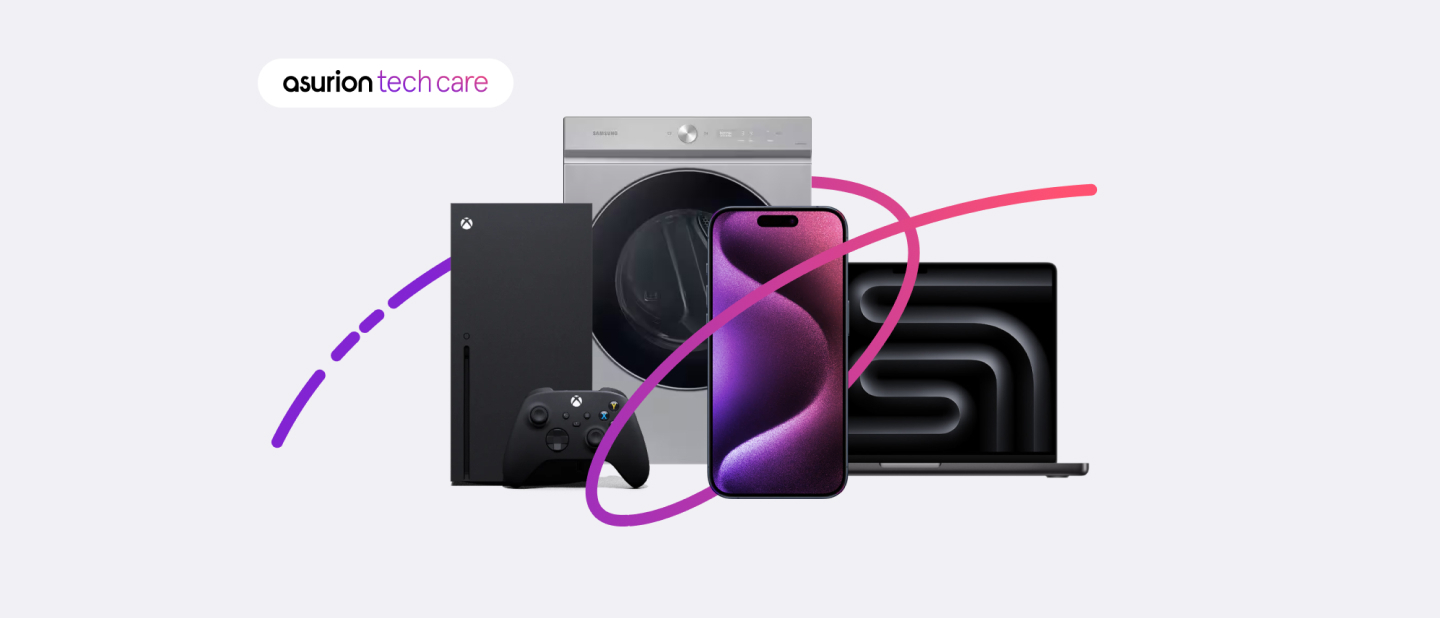When you buy expensive home tech, like a TV or a laptop, you may be wondering, “do I need the extended warranty?” The answer: It depends.
Most households in the U.S. have invested around $11,500 in technology, according to a 2022 CTA U.S. Consumer Tech Forecast and 24th U.S. Ownership Study. That tab will only grow if—and when—your devices break and you need to replace them or undergo costly repairs.
Extended warranties can help you avoid the hassle of researching repair shops or the extra costs of buying something new. But it’s important to know what you’re getting. We’ll walk you through the facts—and myths—surrounding electronics extended warranties.
What’s an electronics extended warranty?
An electronics extended warranty is a contract that can cover the cost of repairing or replacing products from TVs and laptops to gaming systems and tablets due to breakdowns or damage due to accidental damage from handling. They typically kick in after a manufacturer’s warranty expires.
The same goes for electronic protection plans, such as Asurion Tech Care. It provides support and protection for your eligible home tech, like your flat-screen TV, laptop, gaming consoles, and more. But it’s a service contract, not a product warranty provided by a manufacturer, and does not extend the term of any manufacturer’s warranty.
If you’re considering an extended warranty or an electronics protection plan, it’s essential to compare the cost of your electronics with the cost and terms of the plan. You’ll want to look closely at the extent of the coverage—read the fine print to make sure the repair or replacement process isn’t a hassle—when deciding whether this sort of additional protection is right for you.
Top electronics extended warranty myths
When it comes to extended warranties, there are plenty of common misconceptions out there. We rounded up five prevalent misconceptions so you can avoid them—and get some extra peace of mind.
Myth 1—You don’t need an extended warranty because a manufacturer’s warranty will cover everything: False
Most manufacturer warranties don’t cover many of the common problems customers face with their electronics, like accidental damage from handling or breakdowns caused by normal wear and tear.
Plus manufacturer warranties usually expire after a few months or years, depending on the device. An extended warranty can give you peace of mind for longer—and help you avoid unnecessary expenses.
Myth 2—An extended warranty costs more than repairs: False
It’s expensive to repair or replace your tech, but are extended warranties a better deal? That depends on the price of your extended warranty and what devices you have in your home. To find out what it’d cost to replace your devices, check out our home tech calculator.
Myth 3—Extended warranties are limited and inflexible: False
Extended warranties vary. Some are valid for a year, while others last 3 to 5 years or renew until you cancel them. Some cover just the repair costs, while others may ask you to pay shipping fees or deductibles. Check the terms of the plan and get one that works for you.
Myth 4—You only need an extended warranty if you plan to keep a device for a long time: False
An extended warranty for TVs or laptops picks up coverage when a manufacturer’s warranty expires. But even if you only keep a device for a short time, some extended warranties can help boost the manufacturer’s warranty. An extended warranty can cover issues with your laptop like drops, spills, and cracked screens, while manufacturer warranties usually don't cover such everyday problems.
Myth 5–Buying an extended warranty from a store is your only choice: False
When it comes to electronic devices, we recommend researching extended warranties beyond those offered in-store. You may get a better deal, better coverage, and better terms like prepaid shipping, fast service, and a replacement device or reimbursement for electronics that can’t otherwise be repaired.

